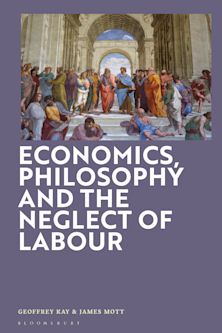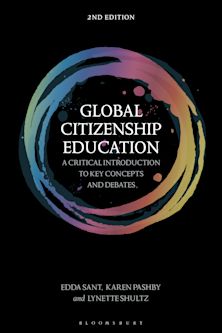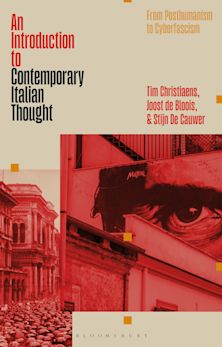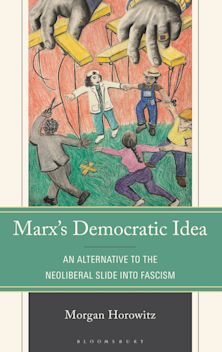- Home
- ACADEMIC
- Philosophy
- Social and Political Philosophy
- Mark Twain and Philosophy
Mark Twain and Philosophy
You must sign in to add this item to your wishlist. Please sign in or create an account
Description
Mark Twain, the “Father of American Literature,” and renowned humorist, satirist, and commentator on humanity and American life, is best known for his classic, Adventures of Huckleberry Finn. Twain’s body of work, however, is expansive; from Adventures of Tom Sawyer and A Connecticut Yankee in King Arthur’s Court to the travelogue The Innocents Abroad and essays on human nature, religion, science, and literature, no aspect of life is left untouched by Twain. His portrayal of American life, ripe with the contradictions of America’s ideals and its actual practices, as well as his characters, at once fantastical and completely human, provide a window onto humanity and social life. As the third book in the Great Authors and Philosophy series, Mark Twain and Philosophy reveals deeper issues raised by Twain’s work and speaks to his continued relevance as a social commentator interrogating issues fundamental to our lives. From slavery, freedom, and human rights, to science, parapsychology, and religion, this book exposes how Twain’s body of work touches every corner of human experience.
Table of Contents
Part I: Morality in Huckleberry Finn
Chapter 1: The Conscience of Huckleberry Finn, Jonathan Bennett
Chapter 2: Huckleberry Finn and Moral Motivation, Alan H. Goldman
Chapter 3: Sympathy, Principles, and Conscience: Getting to the Heart of Huck Finn’s Moral Praiseworthiness, Robert Fudge
Chapter 4: Huckleberry Finn’s Struggle between Sympathy and Moral Principle Reconsidered, Michael Lyons
Chapter 5: Twain’s Last Laugh, Kristina Gehrman
Part II: Twain on Religion
Chapter 6: The Gospel According to Mark (Twain), Craig Vasey
Chapter 7: Mark Twain and the Problem of Evil: The Mysterious Stranger, Letters from the Earth, and The Diaries of Adam and Eve, James M. McLachlan
Part III: Moral Issues
Chapter 8: The Noble Art of Lying, James Edwin Mahon
Chapter 9: Twain’s Critique of Human Exceptionalism: “The Descent of Man” and the Anti-Vivisection Movement, Emily E. VanDette
Part IV: Literary Devices
Chapter 10: Mark Twain’s Serious Humor and that Peculiar Institution: Christianity, Chris A. Kramer
Chapter 11: Socratic Irony in Twain’s Skeptical Religious Jeremiads, Dale Jacquette
Part V: Comparison to Other Philosophers
Chapter 12: The American Diogenes: Mark Twain’s Sacred Profanity, Brian Earl Johnson
Chapter 13: An Epicurean Consideration of Superstitions in Mark Twain and in the Good Life, Jennifer Baker
Chapter 14: Moral Value and Moral Psychology in Twain’s “Carnival of Crime”, Frank Boardman
Chapter 15: Making the Heart Grow Fonder: Twain, Psychical Distance, and Aesthetic Experience, Jeffrey Dueck
Notes
Index
About the Editor and Contributors
Product details
| Published | Oct 15 2017 |
|---|---|
| Format | Ebook (PDF) |
| Edition | 1st |
| Extent | 264 |
| ISBN | 9798216285717 |
| Imprint | Rowman & Littlefield |
| Series | Great Authors and Philosophy |
| Publisher | Bloomsbury Publishing |
About the contributors
Reviews
-
Goldman (College of William and Mary) is a philosopher, and in this introductory study of philosophy, he uses Twain’s texts as material. The 15 essays are organized into five sections. The first and strongest, “Morality in Huckleberry Finn,” centers on Huck’s developing conscience in relation to moral principles. “Twain on Religion” examines Twain’s late writing critical of the Bible and organized religion. “Moral Issues” analyzes Twain’s views on lying and animal rights. “Literary Devices” explains his usage of humor, satire, and irony. Finally, “Comparison to Other Philosophers” looks at Twain in relation to Diogenes, the Epicureans, Nietzsche, Hume, and Edward Bullough. All the essays are thoughtful and clearly written, and the collection is ideal for nonspecialists…. Summing Up: Recommended. Lower- and upper-division undergraduates through faculty; general readers.
Choice Reviews
-
This volume makes a valuable contribution to Twain studies and, in the bargain, to the interchange between philosophy and literature. Above all, it is a reminder, if we needed one, of our sheer pleasure when we read Twain.
American Literary Realism



































